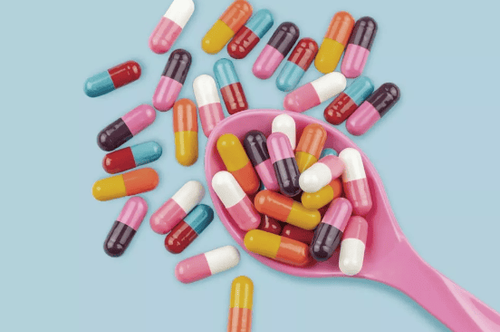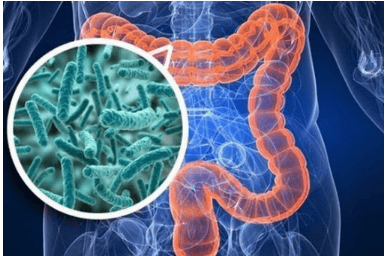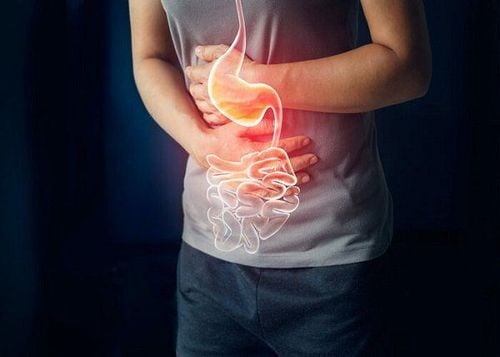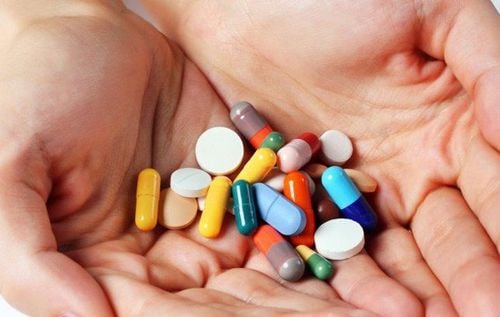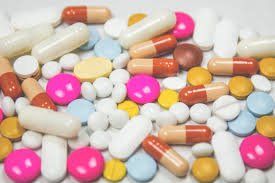This is an automatically translated article.
Antibiotics do not kill viruses that cause illnesses like COVID-19, colds or flu, etc. Moreover, the use of antibiotics to treat these diseases can lead to " antibiotic resistance”. So have you ever wondered why antibiotics can't kill viruses?
1. Do antibiotics work against viruses?
To know if antibiotics work against viruses, you must understand how antibiotics work, as well as the difference between bacteria and viruses.
1.1 How antibiotics work Antibiotics are used in the treatment of infections caused by bacteria. Bacteria are very small organisms and billions of them live on your body. Most of the time, these bacteria are harmless or even beneficial to your body, like the ones that help you digest food, but some can cause illness.
Antibiotics prevent bacterial infections by slowing the growth of bacteria and damaging their ability to reproduce and spread, or kill bacteria by destroying the bacterial cell wall.
1.2 Difference between bacteria and virus - Why can't antibiotics kill viruses? Viruses have a different structure and way of existence than bacteria. Viruses without cell walls can be attacked by antibiotics. Instead, they are surrounded by a protective protein coat.
Unlike bacteria that attack your body's cells from the outside, viruses actually move inside cells, living in and making copies of themselves within them. Viruses cannot reproduce on their own, like bacteria, but instead attach their own genetic makeup to our healthy cells and reprogram those cells to make new viruses. It is because of all these differences that antibiotics do not kill viruses.
2. What to do when the body is infected with a virus?
You may experience some illnesses caused by viruses such as:
Sore throat Most cases of cough, cold and runny nose Acute sinusitis Acute bronchitis Some eye or ear infections Virus Respiratory Syncytial Syndrome (RSV) Influenza COVID You may have heard the phrase: the virus has to “run its course”. It means waiting for the body's immune system to fight disease on its own by triggering an immune response. However, this can take time. For example, a cough and cold can last 7 to 10 days, and the flu or COVID can knock you down for 2 to 3 weeks or more.
If you are sick with a virus, you should rest, drink plenty of fluids, and treat symptoms such as fever or aches. Treatment options include: appropriate doses of pain relievers and fever reducers such as over-the-counter (OTC) acetaminophen or ibuprofen, or as directed by your doctor. If you are diagnosed with a viral illness such as a cough, cold, or sore throat and your symptoms worsen or last for more than 10 days, seek medical attention or contact your doctor.
In some viral infections, such as the flu, shingles (herpes zoster), COVID, or chickenpox (varicella), your doctor may decide to prescribe an antiviral medication to shorten the infection time and help prevent complications. Antiviral medications usually need to be taken early in the infection - usually within the first 24 to 48 hours to be most effective.
In complicated or prolonged viral infections, bacteria can also get in and cause what's known as a "secondary infection," such as bacterial pneumonia. In these cases, your doctor may prescribe antibiotics, if needed, to kill the specific invading bacteria. Antibiotics are not prescribed to treat viruses.
3. Why do we only use antibiotics when needed?
Like any living organism, bacteria can evolve and adapt to a changing environment. This means bacteria can become "resistant" to antibiotics, if exposed to them enough.
When bacteria become resistant to antibiotics, the risk of infection caused by harmful bacteria can become untreatable, because we no longer have any weapons against them. Antibiotics don't kill viruses, so when you don't have a secondary bacterial infection, taking antibiotics can increase your risk of developing antibiotic resistance and make antibiotics less effective in general. more fruitful.
Taking antibiotics when they are not needed is a waste and there is a risk of side effects such as rash, upset stomach or diarrhea. This also means that when you actually have a serious bacterial infection, antibiotics may not work.
4. What should be done to prevent diseases caused by viral infections?
Viruses can cause disease:
In the respiratory tract when we breathe in droplets containing the virus In the skin when sharing personal items, swimming pool towels, .. In the digestive tract due to food poisoning, transmission transmission of the virus through the fecal-oral route,... In the sexual route through contact with body fluids or blood of an infected person. Knowing how viruses are transmitted is the best way to prevent them from entering the body and causing disease. Therefore, you need:
Maintain good hygiene: wash your hands thoroughly after using the toilet, before eating and cooking, after coughing, sneezing,... Do not share cups, plates, eating utensils drinks, towels, ... with other people. Implement good food hygiene and safety techniques: wash food under running water before processing, separate cooked and raw food, eat cooked and drink with boiling water,... Full vaccination enough Follow the principles of safe sex Regularly clean the nose and throat with physiological saline or oral antiseptic solutions. In addition, you should strengthen the body's resistance with a healthy diet: eat a lot of fruit and vegetable foods, reduce salt intake, eat a moderate amount of fat and oil, limit sugar, drink enough water, do not drink alcohol, beer, ... to be able to prevent and fight the attack of the virus.
Follow Vinmec International General Hospital website to get more health, nutrition and beauty information to protect the health of yourself and your loved ones in your family.
Please dial HOTLINE for more information or register for an appointment HERE. Download MyVinmec app to make appointments faster and to manage your bookings easily.




